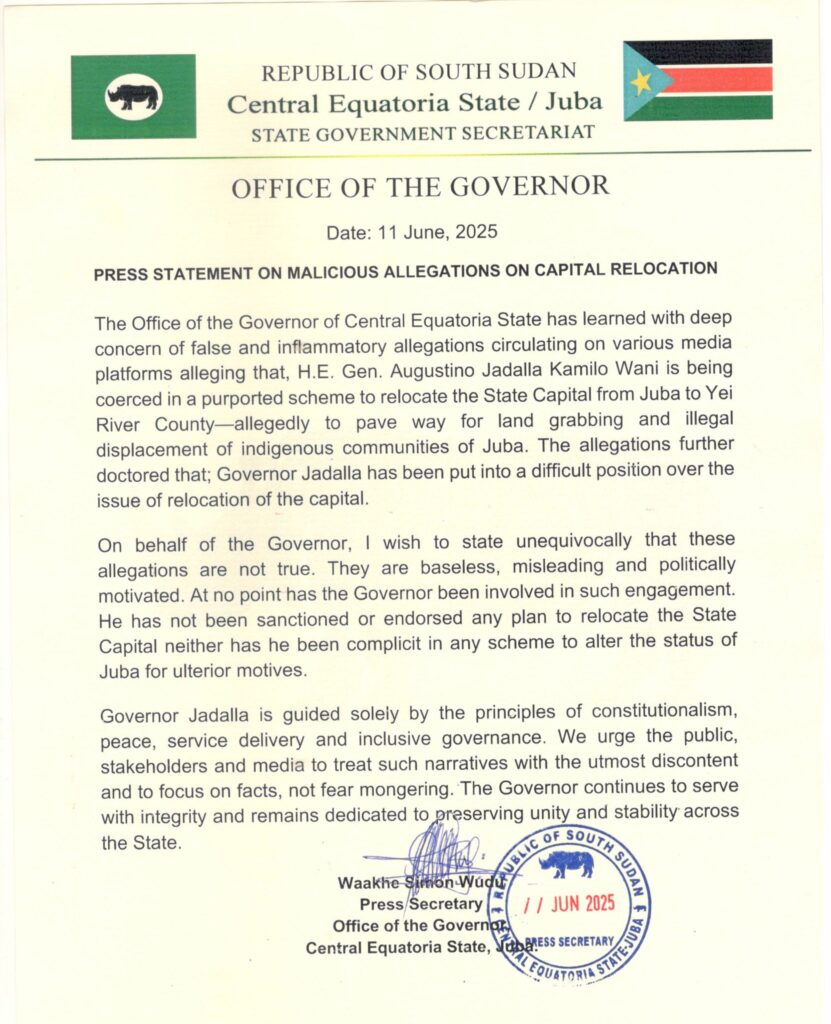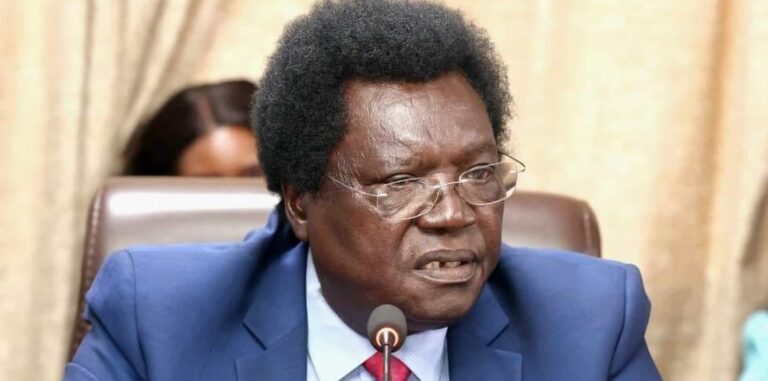South Sudan’s President Salva Kiir dismissed Central Equatoria State Governor Gen. Augustino Jadallah Wani on Monday, replacing him with Gen. Rabi Emmanuel in a late-night decree broadcast on state television (SSBC).
Jadallah, a member of the ruling SPLM party and a popular figure in the state, had served as governor since May 2024. He previously served as governor of the now-defunct Jubek State.
His removal follows weeks of speculation linking his ouster to disputes over tax collection authority and rumors of a planned relocation of the state capital from Juba to Yei.
No official reason was given for the dismissal, but many observers suggest tensions arose after Jadallah allegedly resisted pressure by the top leadership to move the state capital and disagreed with the national government over revenue collection.
Last week, Jadallah’s office denied rumors of relocating the state capital, calling them “false and politically motivated.” His press secretary, Waakhe Simon, stated no such plans existed and dismissed social media claims linking the move to land disputes near Juba.

Separately, a constitutional dispute emerged last month between Central Equatoria State and the South Sudan Revenue Authority (SSRA) over tax collection powers. The SSRA insists only the national government can levy taxes, while state officials argue they have constitutional authority to collect certain revenues, such as vehicle fees.
Jadallah, a former deputy interior minister, is now succeeded by Gen. Emmanuel, who previously served as assistant chief of defense forces for the air force and was a board member of the Civil Aviation Authority.
Civil society groups criticized the abrupt dismissal, citing concerns over institutional instability.
Ter Manyang Gatwech of the Centre for Peace and Advocacy warned that frequent leadership changes undermine governance and public trust.
“Effective governance requires consistency,” Gatwech said. “Frequent removals disrupt development and erode confidence in the system.”
Edmund Yakani, Executive Director of the Community Empowerment for Progress Organization (CEPO), said leadership changes are normal but stressed that officials should be given reasonable time to implement their strategies and deliver services.
“The new governor should really deal with the following issues: illegal logging, emerging illegal gold mining, land disputes, security for humans and agriculture, and complex political governance full of rumors,” Yakani said.
He urged newly appointed Central Equatoria Governor Rabi Emmanuel to engage in broad consultations before forming a government.
“Our immediate call for Governor H.E. Rabi Emmanuel is to host a series of consultations with various public constituencies of Central Equatoria before forming a government to gain the trust and confidence for governing the state,” he said.
South Sudan’s president frequently reshuffles officials, sometimes within months of their appointment.




